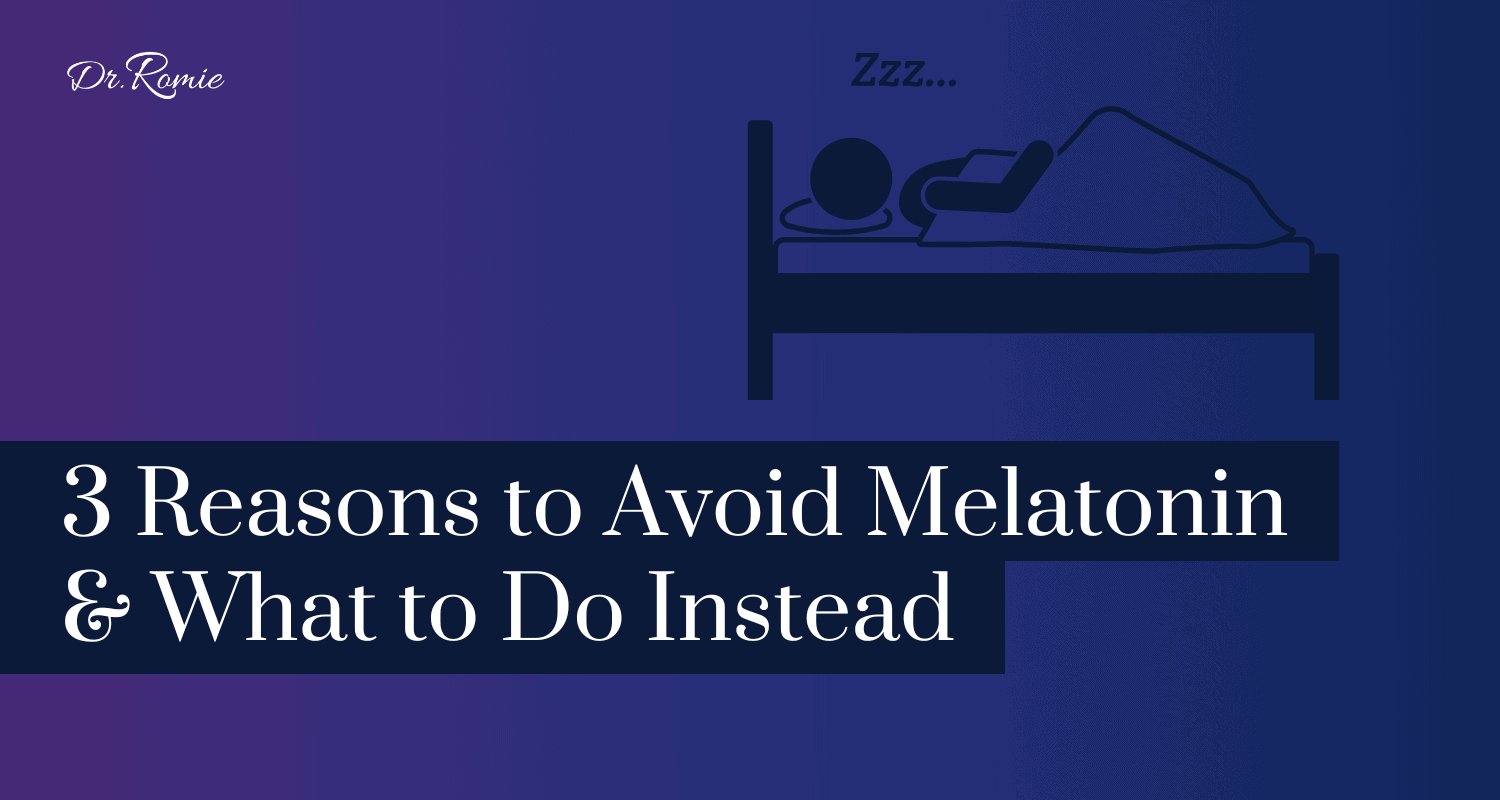If you experience problems drifting off to sleep on a regular basis, there’s a good chance you’ve already tried some common over-the-counter remedies, including melatonin. But before you pop that pill again, you’ll want to read this post thoroughly!
Many people are surprised to learn that I’m not a huge advocate of supplementing with melatonin. While this naturally-occurring hormone is vital for establishing good sleep patterns, its use as a sleep aid is not the panacea many believe it is.
Simply put, I don’t use melatonin in my brainSHIFT protocol because it does not resolve the root cause of insomnia.
Why I’m Reluctant to Recommend Melatonin
The cause of sleep disturbances and insomnia are not always easy to identify, but it’s an important step in resolving issues in the long run. The main cause of insomnia is a disruption in your circadian rhythm (your biological clock).
What factors cause this disruption in our day-to-day lives? Here are the most common culprits:
- Traveling across time zones
- Working irregular shifts
- Hormone imbalances, alcohol use, blood sugar levels
- High-stress levels or burnout.
These root causes need to be identified and addressed in order for insomnia to improve – throwing melatonin at the problem ain’t gonna fix it.
The Problem with Using Melatonin
There are 3 primary reasons why I don’t routinely recommend melatonin:
- In addition to masking or ignoring the root causes of sleep issues, regular use of melatonin can negatively impact hormone levels, particularly when it comes to estrogen and growth hormone.
- Melatonin also won’t help you get back to sleep if you find yourself awake in the middle of the night. You need a more holistic approach to solve this issue.
- And to make matters worse, using over-the-counter melatonin on a regular basis can actually reduce your ability to produce melatonin naturally.
The fact that melatonin could make your sleep worse and mask bigger issues should give everyone pause.
When to Use Melatonin
I’m not completely against the use of melatonin. In fact, it can serve an important role in establishing good sleep patterns – in specific cases. But I won’t recommend it until all factors have been considered.
As a neurologist, I like to see the results of a sleep study before I recommend a solution. If there is a REM cycle disorder, I might suggest trying out melatonin to see if this helps.
Melatonin can also be beneficial when traveling across multiple time zones. When I’m on a speaking tour, I may use melatonin to get a good night’s sleep and combat jetlag. The same goes for shift workers, who may benefit from using melatonin to adjust their circadian rhythm when it’s disturbed by shift changes.
Boost Your Natural Melatonin Levels Instead!
When produced by the body, melatonin can help us shift into a bedtime mindset and drift off to sleep more easily. The trick is doing the right things to support our brains to establish healthy circadian rhythms.
Want to learn more about how to support better sleep cycles? I wrote a blog post that provides you with 3 steps you can take before bed to ease the mind and increase your melatonin levels naturally.
To continue the conversation, head on over to Instagram and let me know how you slept last night!
